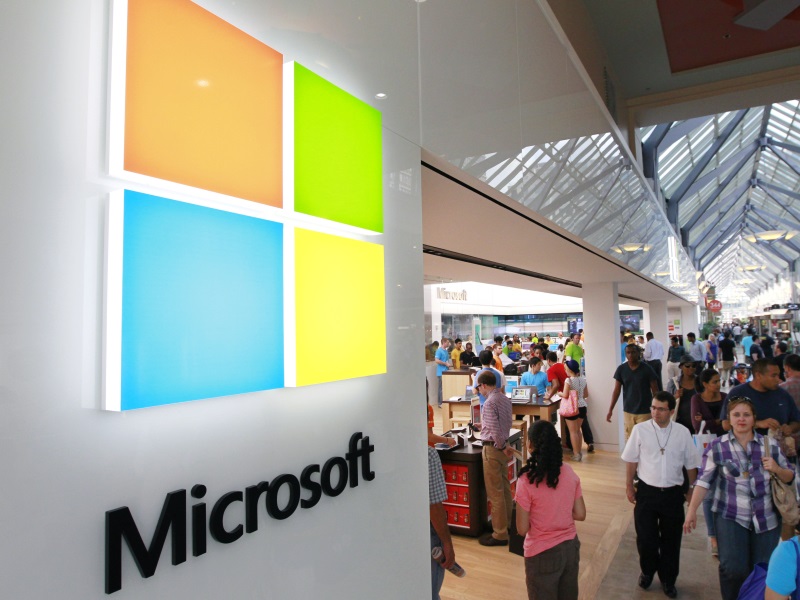- Home
- Internet
- Internet News
- Microsoft to Warn Email Users of Suspected Hacking by Governments
Microsoft to Warn Email Users of Suspected Hacking by Governments

Microsoft told Reuters about the plan in a statement. It comes nine days after Reuters asked the company why it had decided not tell victims of a hacking campaign, discovered in 2011, that had targeted international leaders of China's Tibetan and Uighur minorities in particular.
According to two former employees of Microsoft, the company's own experts had concluded several years ago that Chinese authorities had been behind the campaign but the company did not pass on that information to users of its Hotmail service, which is now called Outlook.com.
In its statement, Microsoft said neither it nor the US government could pinpoint the sources of the hacking attacks and that they didn't come from a single country.
The policy change at the world's largest software company follows similar moves since October by Internet giants Facebook Inc, Twitter Inc and most recently Yahoo Inc. Google Inc pioneered the practise in 2012 and said it now alerts tens of thousands of users every few months. For two years, Microsoft has offered alerts about potential security breaches without specifying the likely suspect.
In the statement, Microsoft said: "As the threat landscape has evolved our approach has too, and we'll now go beyond notification and guidance to specify if we reasonably believe the attacker is 'state-sponsored'."
Microsoft declined to say what role, if any, the Hotmail hacking campaign played in its policy change. The Hotmail attacks had also targeted diplomats, media workers, human rights lawyers, and others in sensitive positions inside China, according to the former employees.
Microsoft had told the targets to reset their passwords but did not tell them that they had been hacked. Five victims interviewed by Reuters said they had not taken the password request as an indication of hacking. Online free-speech activists and security experts have long called for more direct warnings, saying that they prompt behavioral changes from email users.
© Thomson Reuters 2015
Catch the latest from the Consumer Electronics Show on Gadgets 360, at our CES 2026 hub.
Related Stories
- Samsung Galaxy Unpacked 2025
- ChatGPT
- Redmi Note 14 Pro+
- iPhone 16
- Apple Vision Pro
- Oneplus 12
- OnePlus Nord CE 3 Lite 5G
- iPhone 13
- Xiaomi 14 Pro
- Oppo Find N3
- Tecno Spark Go (2023)
- Realme V30
- Best Phones Under 25000
- Samsung Galaxy S24 Series
- Cryptocurrency
- iQoo 12
- Samsung Galaxy S24 Ultra
- Giottus
- Samsung Galaxy Z Flip 5
- Apple 'Scary Fast'
- Housefull 5
- GoPro Hero 12 Black Review
- Invincible Season 2
- JioGlass
- HD Ready TV
- Laptop Under 50000
- Smartwatch Under 10000
- Latest Mobile Phones
- Compare Phones
- Honor Magic 8 RSR Porsche Design
- Honor Magic 8 Pro Air
- Infinix Note Edge
- Lava Blaze Duo 3
- Tecno Spark Go 3
- iQOO Z11 Turbo
- OPPO A6c
- Samsung Galaxy A07 5G
- Lenovo Yoga Slim 7x (2025)
- Lenovo Yoga Slim 7a
- Lenovo Idea Tab Plus
- Realme Pad 3
- Moto Watch
- Garmin Quatix 8 Pro
- Haier H5E Series
- Acerpure Nitro Z Series 100-inch QLED TV
- Asus ROG Ally
- Nintendo Switch Lite
- Haier 1.6 Ton 5 Star Inverter Split AC (HSU19G-MZAID5BN-INV)
- Haier 1.6 Ton 5 Star Inverter Split AC (HSU19G-MZAIM5BN-INV)







![[Sponsored] Haier C90 OLED TV | Dolby Vision IQ, 144Hz OLED and Google TV in Action](https://www.gadgets360.com/static/mobile/images/spacer.png)









